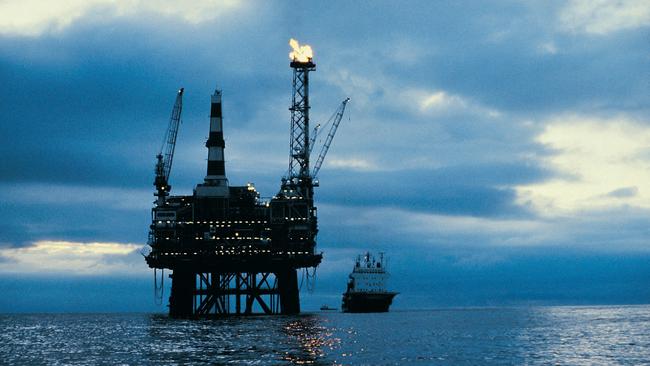Iran downplays talk of any OPEC deal
Iran is vowing to keep increasing its output despite hopes OPEC members could agree to freeze production.

Iranian officials played down expectations for an oil-production deal, calling an OPEC gathering here this week “consultative,” and renewed their vow to pump output higher.
Iran Oil Minister Bijan Zanganeh’s comments to Iranian state media came as energy ministers from across the world arrived in Algiers for a three-day conference that is set to culminate Wednesday in an informal gathering of the Organization of the Petroleum Exporting Countries. The 14-nation cartel is considering output limits, known as a production freeze, that some members hope would lift oil prices out of a two-year funk.
Oil prices were trading up over 3 per cent Monday on the hope an OPEC deal in Algiers would help alleviate a global oversupply of oil. But Mr Zanganeh said Wednesday’s talks were merely negotiations ahead of OPEC’s regularly scheduled meeting on Nov. 30 in Vienna.
The Algiers talks “can be regarded as preparation,” Mr Zanganeh told Shana, a state-run media service reporting on the Iranian oil industry. “The ground is being paved for market stabilisation.”
When oil prices crashed in 2014, OPEC, led by its biggest producer, Saudi Arabia, abandoned its traditional role of cutting production and making oil more scarce to lift the market. The US oil boom made the prospect of OPEC’s output moves less effective, the Saudis have said, making it better for them to simply produce as much as possible and compete for market share.
Two years later, prices remain less than half their 2014 peak of $US114 a barrel for Brent crude, the international benchmark, and OPEC members such as Algeria and Venezuela are clamouring for OPEC to exert its influence again.
The main obstacle to a deal remains differences between Saudi Arabia and Iran, which are regional rivals for power in the Middle East and have religious majorities from different forms of Islam.
Iran is trying to reach output of four million barrels a day, the level it says it produced before Western sanctions crippled its oil industry beginning in 2012. Ahead of Mr Zanganeh’s comments, an Iranian official in Tehran said the country remains committed to hitting 4.2 million barrels a day.
Saudi Arabia has offered to cut its oil production to January levels if Iran holds its own production steady at its current levels of 3.6 million barrels a day, according to people familiar with the kingdom’s proposal.
A similar effort to hash out a production freeze fell apart in April in Qatar over the Saudi-Iran divide, but oil ministers say the petroleum market’s situation has since become more critical.
“We are here to discuss every option possible to achieve a good price,” Iraqi Oil Minister Jabar al-Luaibi said upon arriving in Algiers, saying he wanted prices to rise.
Iraq has a challenge common among OPEC members, though. The country’s officials, including Mr Luaibi, have said they want an oil-production freeze to boost prices, but Iraq is pumping a record amount of oil and says it wants to increase its output further.
Nigerian Oil Minister Emmanuel Kachikwu sounded an optimistic note, saying there would “surely” be a deal this week. But Nigeria wants to return its production to levels seen before a series of attacks on pipelines and may ask for an exemption from a freeze.
Libya, which has had its production lowered by fighting among militias and Islamic State, also wants out of the freeze.
Venezuela has also experienced production decreases as it faces an economic crisis brought on by low oil prices. Oil Minister Eulogio del Pino said here he has “a lot of expectations” for OPEC this week.
OPEC Secretary-General Mohammad Barkindo is set to meet with Saudi Energy Minister Khalid al-Falih this week, along with Messrs. del Pino, Zanganeh and other ministers, the cartel said in a news release.
Robin Mills, chief executive at Qamar Energy, a Dubai-based consulting firm, said OPEC was likely to use this week to get on the same page, not make a decision.
“There are still significant gaps between the Saudis, Iran and Iraq, and the tricky question of what to do about Nigeria, Libya and Venezuela,” he said.
Another wildcard is Russian participation in an oil freeze. The country isn’t a member of OPEC but produces more oil than any other nation, pumping post-Soviet records this year of more than 11 million barrels a day.
President Vladimir Putin said in September an oil-production freeze would be a good idea, but Energy Minister Alexander Novak said in Algiers on Monday Russia was still deciding.
“We will discuss this today,” he said.
Dow Jones



